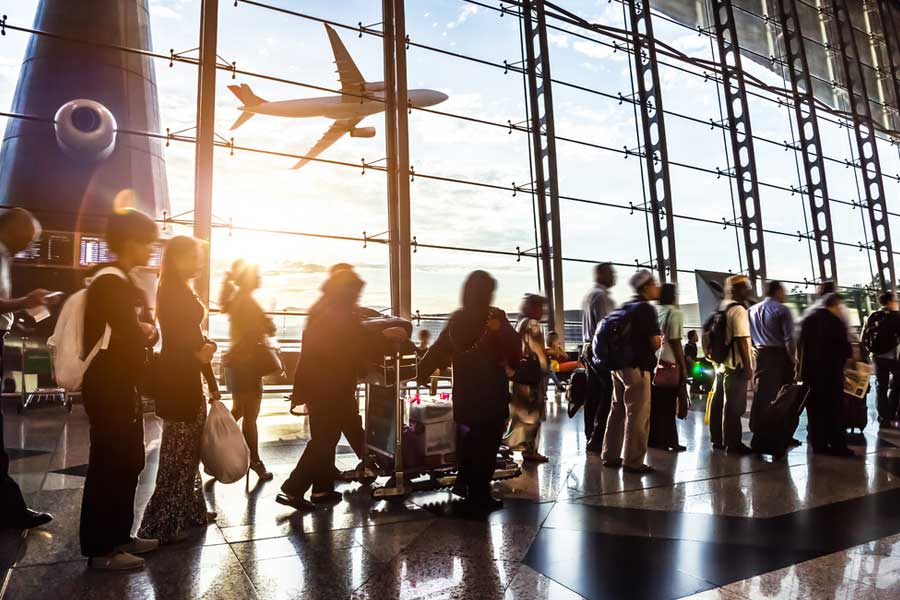The civil aviation ministry on Thursday said deployment of additional CISF manpower, X-ray machines and check-in counters will be done at airports to prevent possible congestion in the upcoming festive season.
Last year, there was significant congestion at major airports resulting in long waiting time at various touch points for passengers. To address the bottlenecks, including inadequate number of X-ray machines, steps were taken by the ministry.
The ministry is working on multiple measures to mitigate any likelihood of airport congestion during the upcoming festive season this year, including deploying additional CISF manpower in two phases by October and November.
Besides, staff reinforcement at the Bureau of Immigration (BoI) will start by October.
"To support security infrastructure at airports, additional X-ray machines, check-in counters, and self-baggage drop facilities will be added at airports," a release said on Thursday.
Further, social media platforms will be used to provide real-time updates to passengers to make airport transit seamless. "Information regarding enhancement in processing capacity and expansion of Security Check areas will also be communicated," it added.
India is one of the fastest growing aviation markets in the world and domestic airlines flew around 1.25 crore passengers in June, a growth of around 19 per cent compared to the year-ago period.
In the wake of the congestion, Civil Aviation Minister Jyotiraditya Scindia had directed the airport operators at Delhi, Mumbai, Bengaluru, Hyderabad, Kolkata, and Chennai to identify bottlenecks and augment capacity to meet the growing passenger demand.
Lack of sufficient airport infrastructure, inadequate X-ray screening machines, bunching of flights, particularly at peak hours, as well as inadequate CISF and immigration manpower, among others, were identified as the bottlenecks.
"For improving requisite infrastructure at major airports, various actions were immediately taken. The number of X-ray machines was significantly increased at pre-embarkation security checkpoints. Additional entry gates were set up," the release said.
Among other measures, additional space was also created by restructuring the terminal infrastructure to increase the capacity of the terminal, ensuring ease for passengers, and thereby helping reduce congestion.
"Ministry of Home Affairs/Bureau of Immigration was approached to ensure 100 per cent manning of immigration counters. CISF/MHA was actively roped in for increasing CISF deployment immediately followed by fresh augmentations.
"Airports operators were directed to ease out the number of flights during peak hours," the release said.
In addition, airport operators installed a 2D barcode scanner at entry gates to facilitate automated entry, the release said and added that airlines were advised to ensure barcodes on tickets issued to passengers so that the same can be read by barcode scanners to facilitate smooth entry at entry/security gates.
Except for the headline, this story has not been edited by The Telegraph Online staff and has been published from a syndicated feed.











